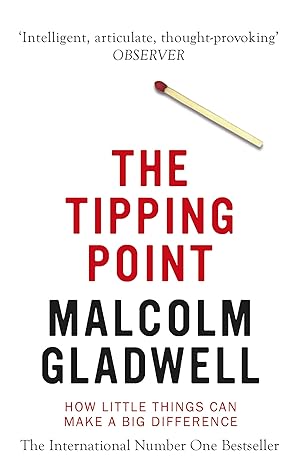More on this book
Community
Kindle Notes & Highlights
Read between
November 15 - December 14, 2023
Of all the teenagers who experiment with cigarettes, only about a third ever go on to smoke regularly.
Parents provide love and affection in the early years of childhood; deprived of early emotional sustenance, children will be irreparably harmed.
In a series of large and well-designed studies of twins — particularly twins separated at birth and reared apart — geneticists have shown that most of the character traits that make us who we are — friendliness, extroversion, nervousness, openness, and so
are about half determined by our genes and half determined by our environment, and the assumption has always been that this environment that makes such a big difference in our lives is the environment of the home.
The problem is, however, that whenever psychologists have set out to look for this nurture ...
This highlight has been truncated due to consecutive passage length restrictions.
Most of us believe that we are like our parents because of some combination of genes and, more important, of nurture
But if that is the case, if nurture matters so much, then why did the adopted kids not resemble their adoptive parents at all?
On the contrary, all of the results strongly suggest that our environment plays as big — if not bigger — a role as heredity in shaping personality and intelligence.
This is a sobering fact. But it also suggests that tobacco may have a critical vulnerability: if you can treat smokers for depression, you may be able to make their habit an awful lot easier to break.
It suggests, instead, that there is an addiction Tipping Point, a threshold — that if you smoke below a certain number of cigarettes you aren’t addicted at all, but once you go above that magic number you suddenly are.
This is the first lesson of the Tipping Point. Starting epidemics requires concentrating resources on a few key areas.
The Law of the Few says that Connectors, Mavens, and Salesmen are responsible for starting word-of-mouth epidemics, which means that if you are interested in starting a word-of-mouth epidemic, your resources ought to be solely concentrated on those three groups.
We are actually powerfully influenced by our surroundings, our immediate context, and the personalities of those around us.
That’s why social change is so volatile and so often inexplicable, because it is the nature of all of us to be volatile and inexplicable.
Merely by manipulating the size of a group, we can dramatically improve its receptivity to new ideas.
By tinkering with the presentation of information, we can significantly improve its stickiness.
Simply by finding and reaching those few special people who hold so much social power, we can shape t...
This highlight has been truncated due to consecutive passage length restrictions.


